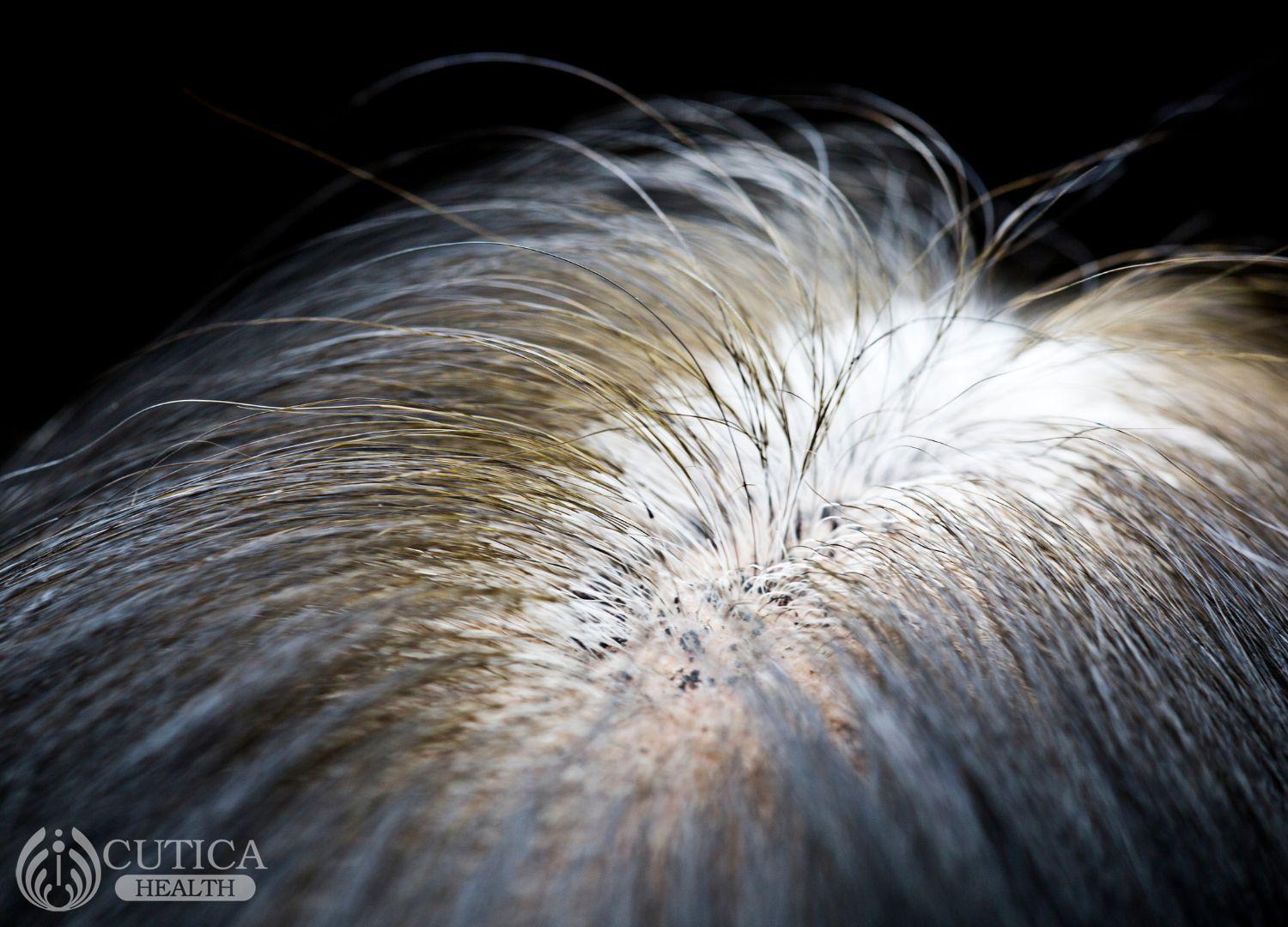Aging is a process we would all love to delay or even suspend if given the opportunity. It is a stage of life many people aren't too excited about.
It's for these reasons that people get shocked by the sight of grey hair. Even a strand is enough to cause some discomfort.
A little hair science
Each strand of hair is made up of two parts, the shaft, and the root. The shaft is the part we see, and the root anchors the hair to the scalp.
The root is also surrounded by hair follicles, which contain cells that produce melanin, a pigment that is also present in our skins, and is responsible for black hair and complexion.
Over time, as we get older, the cells die gradually, and due to the decreased amount of melanin in the strands, they eventually turn grey or white. This process continues until all the hair follicles lose their melanin, resulting in a full head of grey hair.
Aging and grey hair
While aging is the commonest cause of grey hair, young people may notice their hair turning grey, as genetics plays an important role in determining when a person's hair begins to change. Studies have shown that if the hair of your parents or grandparents turned grey early, there's a high chance you'd get yours early too.
Whites tend to have grey hair earlier than blacks because they have less melanin and unlike whites who may start showing signs of greying at around 30, many blacks may be well into their 40s or 50s before their hair starts turning grey.

Other factors that contribute to greying
- Vitamin B12 deficiency: Vitamin B12, which is naturally found in animal products like meat, eggs, and dairy, contributes to the nourishment of the hair follicles. A deficiency of this vitamin leads to increased hair loss and premature greying.
- Vitiligo: This is an autoimmune condition where the body's immune system mistakes its own cells for an enemy and attacks itself. During the 'attack', there's destruction of the cells that produce melanin, called melanocytes. Loss of these cells causes the hair to lose its dark colour.
- Thyroid Disease: This disorder, which may be hypothyroidism or hyperthyroidism, can lead to a depletion of the melanocytes, which causes the hair to become grey. It also makes the hair brittle, dull, and dry, increasing hair loss.
Debunking myths about grey hair
Stress causes grey hair: This is false. Stress can, however, cause a person to shed hair faster, as stress triggers a condition that results in hair loss about three times faster than usual. When this happens in middle-aged people, there's a higher chance that the hair growing back will be grey.

Plucking grey hair makes it grow faster: This is untrue, as the strand removed will simply be replaced by another grey one.
It is a sign of wisdom: This is an old wives' tale, which is untrue. People say this because of the association between grey hair and older age, as it is believed that older people are generally wiser.
Summary
Grey hair commonly occurs as one gets older. People can have grey hair prematurely, especially if they are genetically predisposed. Certain disease conditions can also cause early greying.
